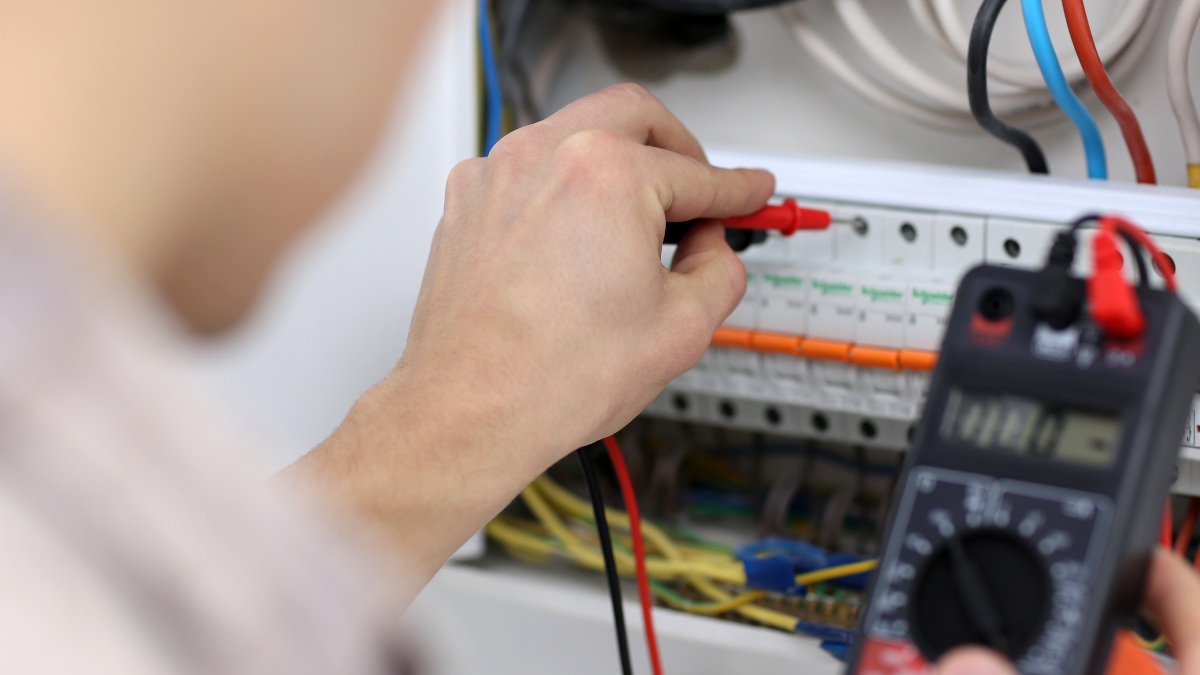Electrical safety is crucial for every household to prevent hazards such as electric shocks, fires, and equipment damage. While Electrical Installation Condition Reports (EICRs) are essential periodic inspections, maintaining electrical safety between inspections is equally important. In this blog, we’ll explore practical tips to help you ensure electrical safety in your home between EICR inspections. Ensuring your home is safe between inspections and obtaining a Domestic EICR Certificate through regular inspections is crucial for maintaining electrical safety standards and ensuring compliance with regulations.
Contents
Understanding Electrical Safety Basics
1. Awareness of Electrical Hazards
Be aware of common electrical hazards such as overloaded circuits, faulty wiring, and improper use of electrical appliances. Understanding these risks enables you to take preventive measures.
2. Importance of Compliance
Comply with electrical safety regulations and standards to minimize risks and ensure the safety of your household members.
Practical Tips for Maintaining Electrical Safety
1. Regular Visual Inspections
Perform regular visual inspections of electrical outlets, switches, cords, and appliances for signs of wear, damage, or overheating. Promptly replace or repair any faulty components.
2. Avoid Overloading Circuits
Avoid overloading electrical circuits by plugging too many devices into a single outlet or power strip. Distribute electrical loads evenly across different circuits to prevent overheating and potential fire hazards.
Safe Use of Electrical Appliances
1. Proper Installation
Ensure that electrical appliances are installed correctly and according to manufacturer instructions. Improper installation can lead to electrical faults and safety issues.
2. Unplug Unused Appliances
Unplug appliances when not in use to reduce the risk of electrical hazards and save energy. This practice also prevents potential damage from power surges.
Maintenance of Electrical Wiring and Fixtures
1. Upkeep of Wiring
Keep electrical wiring in good condition by avoiding physical damage and ensuring insulation remains intact. Inspect wiring in attics, basements, and crawl spaces regularly.
2. Periodic Maintenance
Schedule periodic maintenance checks by a qualified electrician to inspect wiring, electrical panels, and connections. Regular maintenance helps detect and address potential issues early.
Fire Safety Precautions
1. Smoke Alarms
Install smoke alarms in key areas of your home, such as bedrooms and hallways. Test smoke alarms monthly and replace batteries annually to ensure they are in working order.
2. Fire Extinguishers
Keep fire extinguishers readily accessible in your home and ensure household members know how to use them properly in case of electrical fires or emergencies.
Child Safety Measures
1. Childproof Outlets
Install tamper-resistant outlets to prevent children from inserting objects into electrical sockets. Use outlet covers or safety caps to further childproof accessible outlets.
2. Educate Children
Educate children about electrical safety practices, such as not touching electrical appliances with wet hands and avoiding playing near electrical outlets or cords.
Handling Electrical Emergencies
1. Power Outages
During power outages, use flashlights or battery-powered lanterns instead of candles to prevent fire hazards. Have a backup plan for emergency lighting and communication.
2. Electrical Shock
In the event of an electrical shock, immediately turn off the power source if safe to do so and seek medical attention promptly. Avoid touching the person or the electrical source directly.
Conclusion
Maintaining electrical safety in your home between EICR inspections requires vigilance, awareness, and proactive measures. By implementing these practical tips—such as regular visual inspections, safe use of electrical appliances, proper maintenance of wiring, and fire safety precautions—you can significantly reduce the risk of electrical hazards. Remember, electrical safety is a shared responsibility that benefits everyone in your household. Stay informed, take preventive actions, and prioritize the safety of your home and family members. By doing so, you contribute to creating a secure living environment where electrical hazards are minimized, and peace of mind is maximized. For homeowners seeking expert guidance and Domestic EICR Certificate solutions, partnering with Landlord Certification ensures comprehensive safety inspections and compliance with regulatory standards tailored to residential properties,If you want to stay updated with posts like this, please follow us on HSNIME.










